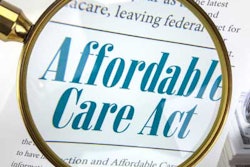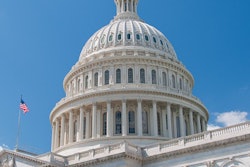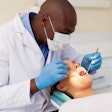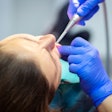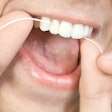
Policy experts discussed what dental care might look like under U.S. President Donald Trump and the new Congress during a January 24 webinar. The panelists were particularly concerned about children's dental benefits if the Patient Protection and Affordable Care Act (ACA) is repealed and replaced.
The webinar, which was put together by AcademyHealth, a nonprofit health services research organization, featured five panelists with expertise in health policy, economics, dentistry, and public health. The discussion largely centered on why dentistry wasn't included as an essential benefit for adults when the ACA was created, and what might happen to the dental coverage that does exist with the Republican party's push to repeal and replace the law.
“We know that the ACA's future is still very much doubt.”
"We know that the ACA's future is still very much doubt," said Benjamin Sommers, MD, PhD. "But so far the evidence has been pretty clear that coverage has been dramatically improved, and with it access to care for many Americans has significantly improved as well."
Dr. Sommers is an associate professor of health policy and economics at the Harvard University T.H. Chan School of Public Health and an assistant professor of medicine at Harvard Medical School.
The uncertain future of the ACA
Under the ACA, dental care is an intrinsic and essential component of pediatric healthcare, but it is optional for adults. When John McDonough, DrPH, MPA, who helped to create the ACA, was asked about the exclusion of dental benefits for adults, he didn't recall a big push by advocates.
"There were people knocking on the door around children's dental coverage, and they were heard, and they were addressed," said McDonough, a professor of public health practice at Harvard's school of public health. "When the signals were sent out to various parts of the oral health community, there was no particular enthusiasm for saying, yes, this is important. And there were so many other urgent voices shouting at the top of their lungs."
While the ACA may not have directly given all adults dental coverage, Burton Edelstein, DDS, MPH, stressed that other structural components of the law made it easier for adults to get oral healthcare. Dr. Edelstein is a professor of dental medicine at the Columbia University College of Dental Medicine and a professor of health policy and management at Columbia's Mailman School of Public Health.
For instance, the dental safety net was expanded through federally qualified health centers, Dr. Edelstein said. Another panelist noted that there was a slight uptick in the number of young adults with dental insurance, because many dental plans let children up to age 26 stay on their parents' plan, even though the companies were not required to by law.
When asked what might change under the new administration, the panelists stressed that no one really knows, and there has not been talk about specifically targeting oral health. However, there was concern that the new Congress may repeal the essential health benefits component of the ACA, allowing states to decide whether dental benefits should be part of pediatric healthcare, and that a major overhaul to Medicaid may leave low-income children and adults without access to dental care.
"The questions are just how flexible [state autonomy] will be, and what will happen to dental benefits," Dr. Edelstein said. "On both the coverage side and the structural side of the ACA, there are many, many, many more questions than answers."
Need for oral health research
The ACA is not the first time, and probably not the last, that oral health has been not considered essential. From cutting dental benefits during tough economic times to not including most dental procedures within Medicare, oral health is siloed from the larger healthcare policy discussion.
"We don't quite have a clear conceptualization of where dentistry fits in the larger U.S. healthcare system," Dr. Edelstein said.
One way to get lawmakers to recognize that oral health is an essential component to overall health is to have quality health services research affirm its value. McDonough stressed that research confirming dentistry's importance in terms of health status and reducing cost is the best way to get policymakers' attention. Lisa Simpson, MPH, president and CEO of AcademyHealth, agreed.
"Without the research, you have no hope of informing policy-making, and policies will be made in the absence of research," she said. "You have to go forward with: Here's a problem, and here's what we've learned through research of different approaches to addressing this challenge."
While Dr. Edelstein was the first to point out the dearth of high-quality dentistry research, he does not believe it is dentistry's only problem. He also believes the profession needs a more concerted advocacy effort.
"We need a more coherent, advocacy-stakeholder coalition -- developing strategy, coming up with plans, picking priorities, and working more as a whole," he said. "There's a lot of compelling activity going on, but it seems to me too disparate and not coordinated well enough."




